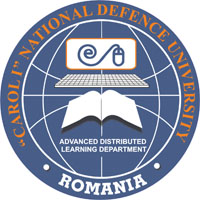A CASE STUDY OF A LEARNING PLATFROM BASED ON INTERACTIVE PRINCIPLES
A CASE STUDY OF A LEARNING PLATFROM BASED ON INTERACTIVE PRINCIPLES
Author(s): Silvia FătSubject(s): Education
Published by: Carol I National Defence University Publishing House
Keywords: e-learning; learning platform; instructional strategy
Summary/Abstract: This paper presents the results of a recent research accomplished using a questionnaire-based investigation addressed to 185 students from University of Bucharest. We were interested to find some instructional strategies in student-centered e-learning context. A new Learning Platform was used to teach instruction theory and practice, during a semester. This platform integrates educational content, and learning tools. Easyclass is an interesting technological tool for teachers and students. It is based on various resources, assignments, and evaluation tests. The impact of this study is oriented to establish some patterns of synchronous and asynchronous learning support, so students could connect with various educational resources. The study was designed so as to reveal the following aspects: diagnosing the difficulties encountered by students during this complex learning process; identifying the extent to which students could benefit from the advantages of this learning platform; identifying certain examples of best ICT practices, in terms of growth of intellectual and social-affective competences; appreciating the role of technological ability in the professional integration of the future teachers; indicating the type of ICT influence on determining the teaching/learning strategies in order to improve the learning process through research, communication, collaboration in on-line environment. Designing a teaching approach in which ICT is enhanced, calls for an active participation of students, access to a greater range of resources, cooperation in solving work tasks and interaction patterns. Students prove the basic literacy using the computer (editing text, image, presentation, e-mail, communication, applications and information management), but we were interested to demonstrate other development directions, such as creative attitudes toward computer use, relevant capabilities to show potential advantages.
Journal: Conference proceedings of »eLearning and Software for Education« (eLSE)
- Issue Year: 11/2015
- Issue No: 02
- Page Range: 447-452
- Page Count: 6

